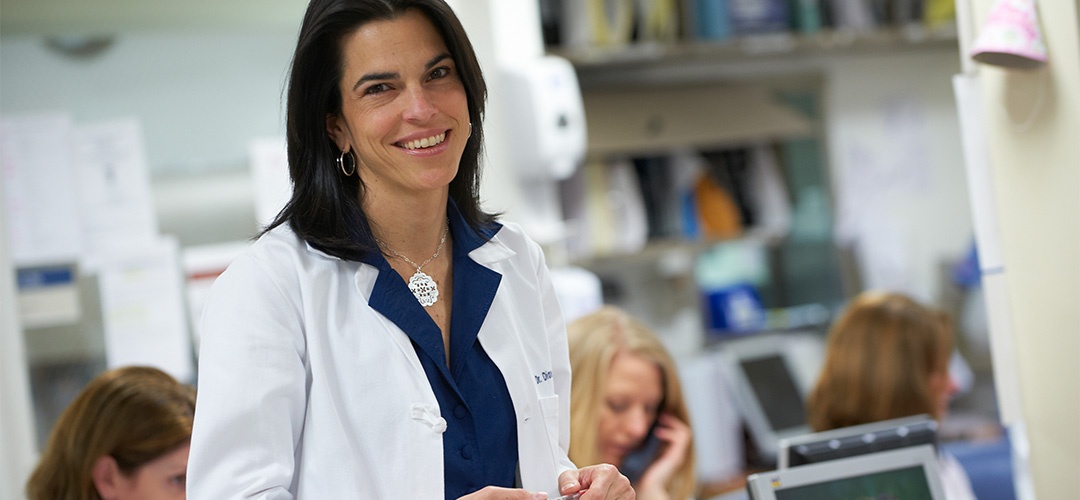Reflections from a Medical Oncologist
By Diane Reidy-Lagunes, MSK Medical Oncologist
Hopes Raised, Then Dashed
After two CT scans showed no sign of cancer, everyone was feeling hopeful about Drew’s future. A 21-year-old college student with an upcoming summer internship, he had three months of adjuvant chemotherapy left, in which we’d attempt to eradicate any microscopic adrenal cancer cells that might still be lingering following his big surgery. After that, he planned to return to his senior year at a top university, where he would graduate magna cum laude. At least that’s what was supposed to happen.
Then his latest CT scan came back. The cancer had recurred.
It fell to me, as his treating physician, to break the news — and I found myself struggling with it. How could I explain this to such an extraordinary young man and his supportive family? I retreated to my office to compose myself. When I summoned the courage to face them, it turned out that I didn’t even have to say much; my swollen eyes and the look on my face told the story.

Continuing the Fight
When it comes to cancer, these scenarios are heartbreakingly common — especially in my specialty. I research and treat rare forms of the disease that don’t get the same funding and resources as more common cancers. And this begs the question: If we have so many more losses than wins, why do we keep fighting?
We fight because we do have many wins, and those gains are part of what motivate us to keep going. I am fortunate to work with some of the most brilliant and talented physicians and researchers in the world at Memorial Sloan Kettering, and we all fight daily to improve the chances for our patients.
Each one of us is driven by some internal motivation, whether it’s our innate desire to help others, our hope of advancing science to improve treatments, or that we’ve lost a loved one to cancer.
Staying in the Here-and-Now
But we’re not there yet. Although I am also a researcher, I view my primary job as a clinician caring for patients in my clinics right now, the ones waiting for my help and attention. And the truth is that many of them, particularly those with stage IV disease, will die from their cancer. Although it is my duty to honestly explain patients’ prognoses, it is hard to escape the pain I feel as I look them in the eyes during that vital discussion. It hurts a lot.
With that painful realization, I also have a responsibility to give them the confidence that I, their treating physician, will be traveling this journey with each and every one of them — and sharing all their emotions along the way. Equally crucial is to provide hope because the truth is that neither I nor anyone else can predict any one patient’s outcome.
Drew passed away from metastatic adrenal cancer on Valentine’s Day in 2014. Before he died, he wrote a letter entitled “Saying Good-bye to a Friend,” intending to send it to his friends and family. He never finished it.
I hope that one day I’ll help make those good-byes no longer necessary.
Make an impact on research and patient care at MSK DONATE NOW